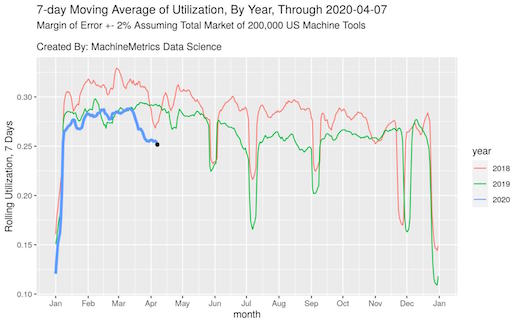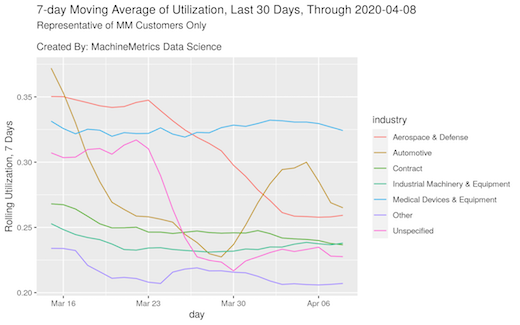COVID Counterattack: Best Practices from the Manufacturing Trenches
Living under the shadows of coronavirus, no one has all the answers; but everyone’s in the same boat as we work toward the ‘new normal.’
Posted: April 10, 2020
EDITOR’S FORUM
BY STEPHANIE JOHNSON
You can remote work all you want, but manufacturing and assembly require the presence of more than one human being at a time. How to protect your employees, the families they go home to, the communities they live in? I can only imagine how gut-wrenching these decisions were for those of you who’ve made them and those who are wrestling with them.
I’m writing this in early April from suburban Chicago. I’m grateful I don’t work downtown and that some family members live in rural Illinois, but I’ve watched with apprehension every day as the virus moved west toward Iowa into their county.
Some of you have completely suspended operations. Those of you who’ve pivoted to fill orders that must be delivered in two weeks (or less) are probably operating with fewer employees. Here’s how some of you are dealing with the disruption:
- Acknowledge that employees are scared and remember they look to you for direction on how to respond. Stay calm.
- Many manufacturers worry about the security of data flowing between machines and the cloud, but thanks to social engineering – not social distancing – employees are by far your company’s weakest link. Make sure employees working from home know and use strong cybersecurity measures.
- Most work stations are easily reconfigured if they’re not already at least 6 feet apart, but even lights-out manufacturing occasionally requires someone’s presence in the factory. Reconfigure shifts so as few employees as possible are on the floor at any given time. Stagger lunch breaks. Clean machines, tools, and pathways between shifts.
- You can’t control what suppliers’ drivers do before they show up at your loading dock, but you can adopt technology that streamlines interactions by eliminating human contact. Perhaps it’s time to follow the lead of service businesses like SportClips Haircuts, which requires customers to sign in online.
- Use downtime to upskill. If business has slowed, take someone off the line or a machine and ask them to coordinate each employee’s knowledge gaps with the free training manufacturers and trade associations are offering. Revenue per employee impacts profit more than revenue per machine, so figure out now how to increase each employee’s productivity to take full advantage as supply chains migrate from overseas to the U.S.
- Use downtime to do things no one had time to do before. My dentist, who’s rescheduled my semiannual cleaning three times, is contacting every patient to confirm mailing address, email, and telephone number. Those updated records will eliminate wasted time later.
- If production demands have eased, you have the time now to figure out what the data you’ve collected is telling you. Prioritize how you’re going to drive value by integrating the data with other systems, like enterprise resource planning (ERP), to streamline overall operations. Consider dissecting the entire process, from order receipt to when the customer receives the order, like you would a faulty machining, fabrication, or assembly process.
And give yourself a break. Constant evaluation, rescheduling, and reconfiguring is exhausting. Change is hard, but the ability to bend rather than break is what will enable you to lead your company through this to continuing competitiveness when the pandemic ends – and it will. Until then, stay safe. And thank you to MachineMetrics for supplying graphics analyzing utilization rates on thousands of machines nationwide.
















